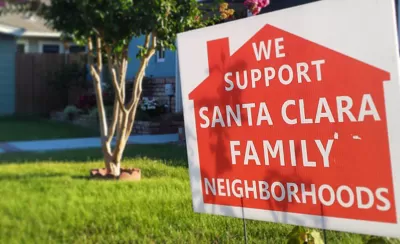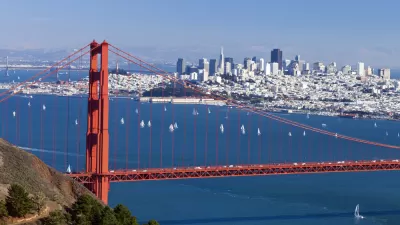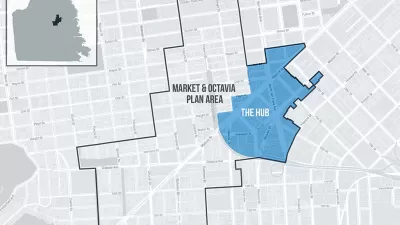Historically liberal cities belie their supposed concern for human welfare by rejecting new development. Meanwhile, more conservative cities have seized the moment to become more progressive, innovative, and inclusive.

"The "radical left" has been protesting capitalist developers for years. In part because of the influence of self-described Democratic Socialist Dean Preston, the current Board of Supervisors has waded deeply into radical territory and into anti-developer activism. Of course, by many accounts, the provision of housing aligns squarely with progressive values: housing is a human right, and governments ought to protect, and even further, that right. A diversity housing typologies and price points, especially in dense, diverse cities, is the epitome of inclusiveness."
"San Francisco doesn't seem to get this. But some other cities do -- and not necessarily the ones you'd expect."
"I can't help thinking that the San Joses and San Diegos of the world want to get in on the fun. For pretty much as long as California has existed, they have been considered less urbane, less fun, and less attractive than rivals like San Francisco and Los Angeles. They missed out on the dense urbanism that developed before World War II and then contentedly took advantage of suburbanization in the latter half of the 20th century. Now that urbanism is back -- because of the creative class, antipathy towards long commutes, revolts against suburban living, or what-have-you -- they're grown tired of their own dullness (one of the more outlandish examples: San Jose's proposal for a weird monumental tower). And, importantly, they have relatively more land with which to try new things and seem unafraid of welcoming new residents."
FULL STORY: Let's Retire Our Ideological Labels For Cities

Planetizen Federal Action Tracker
A weekly monitor of how Trump’s orders and actions are impacting planners and planning in America.

Chicago’s Ghost Rails
Just beneath the surface of the modern city lie the remnants of its expansive early 20th-century streetcar system.

San Antonio and Austin are Fusing Into one Massive Megaregion
The region spanning the two central Texas cities is growing fast, posing challenges for local infrastructure and water supplies.

Since Zion's Shuttles Went Electric “The Smog is Gone”
Visitors to Zion National Park can enjoy the canyon via the nation’s first fully electric park shuttle system.

Trump Distributing DOT Safety Funds at 1/10 Rate of Biden
Funds for Safe Streets and other transportation safety and equity programs are being held up by administrative reviews and conflicts with the Trump administration’s priorities.

German Cities Subsidize Taxis for Women Amid Wave of Violence
Free or low-cost taxi rides can help women navigate cities more safely, but critics say the programs don't address the root causes of violence against women.
Urban Design for Planners 1: Software Tools
This six-course series explores essential urban design concepts using open source software and equips planners with the tools they need to participate fully in the urban design process.
Planning for Universal Design
Learn the tools for implementing Universal Design in planning regulations.
planning NEXT
Appalachian Highlands Housing Partners
Mpact (founded as Rail~Volution)
City of Camden Redevelopment Agency
City of Astoria
City of Portland
City of Laramie





























